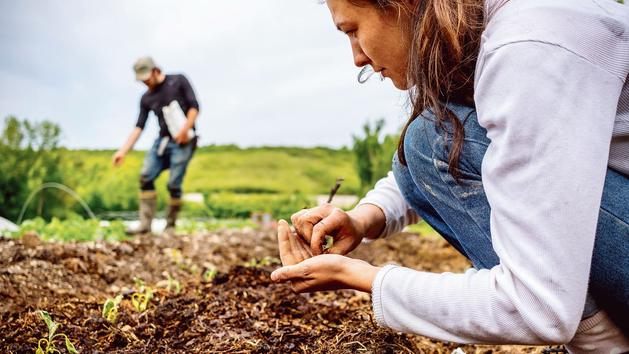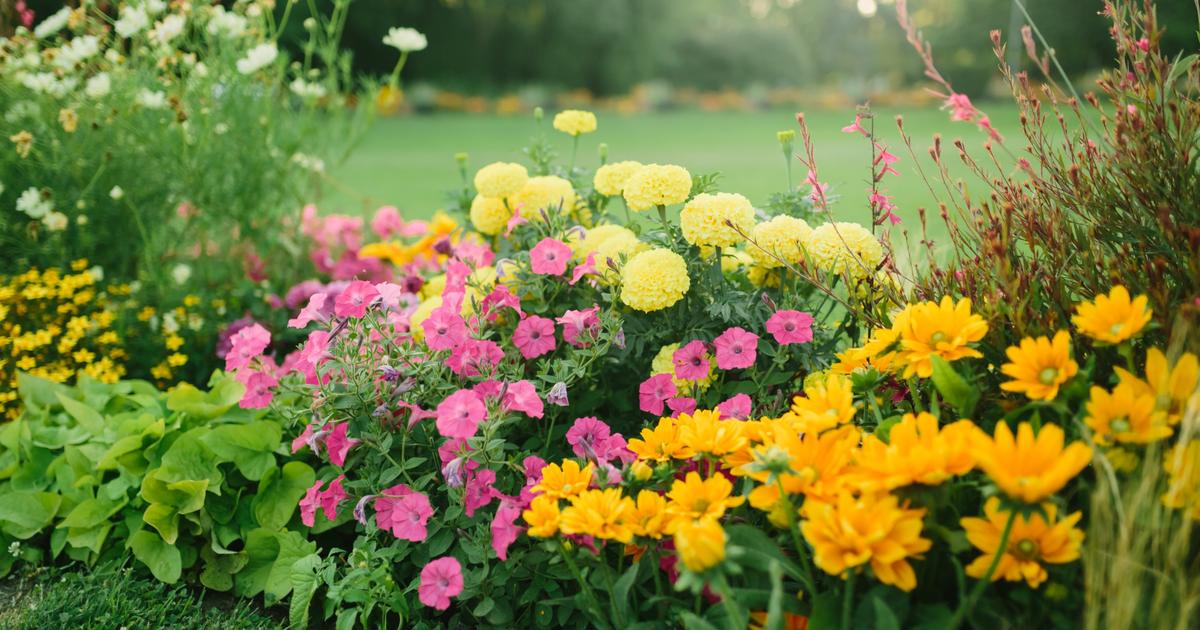On this first day of summer, some are already dreaming of diving in the deep blue and lazing around in the shade of a parasol pine. Others, on the contrary, aspire to return to the school benches. In France, workshops and internships are increasing. Manual work, well-being or writing techniques, initiation to life in nature ... Holidays become synonymous with discovery trips rhyming, often, with interior journeys. If the trend is not new, confinement has strengthened it. This is hardly surprising Florian Mannaioni, creator and coordinator of the collective L'Oseraie du possible (oseraiedupossible.fr). “I was 27 years old when I started basketwork eleven years ago. It was crazy for someone my age. Today, interest in crafts is growing with the desire to get back to basics. ”His collective brings together thirty basket makers, fifteen of whom teach lessons across France. In two days, you learn to braid the plants and you leave your basket under your arm. “The trainees come to get their heads oxygenated. Basketry refers to ancestral gestures, linking the past and the present with little: ten fingers, a young twig, a pruning knife and pruning shears. Wicker is nature, the living. Basketry soothes and reconnects to the material. ”
Handicrafts find new life with the young generation
Fed up on the internet and in love with workshops smelling of wood and engine oil, Édouard Eyglunent, 31, co-founded in 2017 the internet platform WeCanDoo (wecandoo.fr). Different courses with five hundred artisans are offered in ten cities and surroundings (soon 14). Dedicated, the craft industry enters the 2.0 era. In a few hours or several days, the participants make a jewel, a guitar or a skateboard from A to Z. Thus in Ardèche, in his house surrounded by chestnut trees, Benjamin Gaumard, former assistant to the fashion designer Kenzo Takada, offers a cabinetmaking workshop. “We start with a raw walnut wood tray to make a coffee table. At first, people are afraid of machines and then they gain confidence. They are often amazed by the finish of their furniture, ” he says. All for € 770 for a couple, overnight accommodation and meals included. In 2019, WeCanDoo welcomed 50,000 interns. Airbnb is said to have knocked on their door - which has remained closed to this day.
Holidays are a time when you can afford the time and luxury to learn something
Laurent Queige"The confinement prompted us to question ourselves," notes Laurent Queige, director of Welcome City Lab, an incubator of start-ups dedicated to tourism in France. However, vacations are a time when you can afford the time and the luxury of learning something in the field you want. Many regions have understood this, notably Burgundy, the hinterland of Occitania or in Rhône-Alpes. I would almost translate it in terms of the slogan: “Come to us to discover yourself.” Authenticity and space are in great demand. ” Welcome City Lab has also partnered with the #ExploreParis platform offering tours and workshops in the capital and the inner suburbs. All outside the tourist circuits and accompanied by "culture smugglers", street art artists, stonemasons, beer brewers ...
Could this be the end of the contemplative vacation?
For a weekend at Aubazine Abbey, in Corrèze, Hildegarde offers to come and immerse yourself in this place steeped in history to discover and learn to use the plants that nature offers us. Wild Escapes
Perhaps. Now, to discover a territory, you open your nostrils more than ever and look at the weeds twice. Nettle is precious and delicious in jam, we learn from Laurence Talleux, alias Hildegarde, the origin of Wild Escapes. "It has many virtues, like many plants, " she says. Our grandparents lived with nature, but their knowledge died out after the Second World War. I'm trying to pass it on again. ” Hildegarde organizes five-day training courses at Aubazine Abbey, in Corrèze, and during itinerant hikes. “Eating wild plants collected and cooked by us is great. It is even more so around a campfire in the middle of nature. There is something that speaks to the guts. Around the flames, people reveal themselves. I have witnessed big life changes. Once, a trainee, highly placed in a large national company, returned home and two days later he resigned and left his Paris apartment ... Nature shows us the essentials and allows us to reconnect with ourselves. "
Hikes dedicated to astronomy
More thoughtful is the retraining of Benjamin Chareyron, musician in the Paris National Opera Orchestra. He takes advantage of his holidays to carry out internships on various WWOOF France farms. Born in the 1970s in England, this now international movement offers volunteers to help farmers and learn about organic skills and ways of life against food and lodging. "I am surprised by the profession of organic farmer," emphasizes the musician . It is an essential, hard and trying job, with a heavy mental load but at a lousy salary. Farmers can barely make a living from it . " The future farmer already imagine other sources of income. “With WWOOF, we learn on the ground. The important thing for us is this human relationship without monetary exchange, underlines Cécile Paturel, France coordinator of the organization. This approach is attracting more and more varied profiles. ”
Read also: Summer holidays: 15 experiences to live to (re) discover the French countryside
But you don't have to work hard to learn about nature. With the small agency Azimut Voyage, donkeys carry bags on a hike dedicated to astronomy in the Cévennes park, recently labeled the International Starry Sky Reserve. We walk the earth like the sky, in a simple way, with a mountain guide and a specialist from the Montpellier Planetarium. "Twelve years ago, when the agency was created, I felt like I was innovative and ahead of the curve, especially on the ecological side," remarks Gaëlle Chaux. Since then, people have changed their lifestyle, their diet and therefore their vacation. With a very strong appetite for nature and knowledge. The holidays promise to be happy. And studious.
Read also: The Cévennes National Park, from mountains to marvels
"The crisis has highlighted the importance of local proximity tourism"
Caroline Couret is the founder of Creative Tourism Network. Creative Tourism / Press photo
Caroline Couret is the founder of Creative Tourism Network, an international network which promotes creative tourism. His expertise has accompanied many destinations (Barcelona, Tuscany, etc.) and supported the World Tourism Organization, Unesco and the World Bank.
LE FIGARO. - Would contemplative vacations give way to more “intelligent” vacations?
Caroline COURET. - Absolutely. This way of "intelligent travel" has existed for a long time and is similar to the Grand Tour ("educational" journey of the British aristocracy, developed from the middle of the 18th century, editor's note ). In the 2000s, Professors Greg Richards and Crispin Raymond theorized the concept of “creative tourism”, or creative tourism, by identifying a profile of travelers inclined to develop their creativity during a workshop or a typical experience of a local culture. They are ahead of the reflection of a societal change. Creative tourism is not a fashion or a marketing strategy but an evolution. The seasoned and informed tourist now turns to trips that make sense, both ethical and human. Interest, ultimately, is not so much the destination but the way to discover it.
The seasoned and informed tourist now turns to trips that make sense, both ethical and human.
Caroline CouretHow can creative tourism help destinations differentiate themselves from others?
It offers new opportunities to emerging or more mature destinations seeking to reinvent themselves. All of them have a rich intangible heritage that is little valued. By leveraging their DNA and zero kilometer culture, they create a circular economy and differentiate themselves from others. We support them by developing with them authentic, creative and fun tourist experiences without falling into "folklorization". Certain destinations thus manage to recreate their DNA in relation to very different activities. In France, in Biot, you can, for example, learn the art of blown glass, transform an old jewel or make your bread during an hour, day or week workshop.
Will the Covid crisis further amplify this need for creative tourism?
Certainly. The crisis has generally aroused real enthusiasm for creative activities. It created a strong desire to share experiences in a small committee, not far from home. Finally, it highlighted the importance of local proximity tourism. Creative tourism allows you to rediscover a region from a new angle while supporting the local economy. It is part of sustainability and far from mass tourism.







